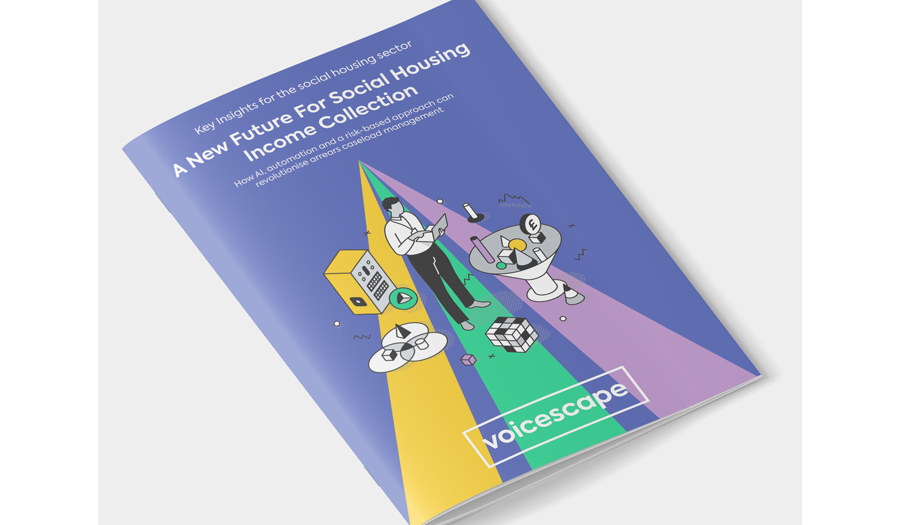
The ongoing COVID-19 pandemic and rapidly rising inflation is putting immense pressure on social housing collections teams. As the cost of living crisis unfolds and tenants are forced to make stark choices between heating and eating, the need for efficiency and smarter decision-making has never been more essential.
That’s where Artificial Intelligence (AI) and Machine Learning (ML) come in…
What is Artificial Intelligence and Machine Learning?
As intimidating as the terms may sound, these technologies aren’t anything new. In fact, AI is now considered an integral part of our daily lives – influencing everything from the way we work and communicate to how we shop online.
Artificial Intelligence is the ability of a computer or machine to perform specific tasks and mimic human-like cognitive functions, such as decision-making and problem-solving. It’s used to automate manual tasks, allowing for better time and resource management.
Machine Learning is an application of AI that enables systems to automatically learn and improve from experience. In a social housing context, it uses evidence-based decisions to help landlords solve complex commercial problems and improve mission effectiveness.
Now that you understand the basic concepts, let’s take a look at how these tools can be applied in social housing.
How does this technology improve operations?
As you’ll know, income collection in social housing traditionally follows rules-based methodology. The issue with this approach is that it doesn’t consider individual circumstances or risks – something that’s always incredibly important, but particularly so when widespread financial pressures are at play.
If you want to gain control over your income recovery operations, you need to start looking at arrears from a risk-based perspective. In a nutshell, this approach to income collection utilises AI and ML to review resident behaviours on a case-by-case basis. It enables you to effectively monitor, manage and mitigate risk over time, transforming your arrears management process while removing human bias and error. This is something we cover in more detail in our new eBook.
Take your first step towards personalised, automated interventions
In our new eBook, ‘A New Future For Social Housing Income Collection’, we unveil how AI, automation and a risk-based approach can revolutionise arrears caseload management. You’ll learn:
- Why a risk-based approach is transformationally better
- The role of AI and ML
- How to modernise your operations with a groundbreaking automation solution
Don’t miss out on the insights! Download the free eBook copy today and start recovering more debt, at a lower cost, and with a greater customer experience.

